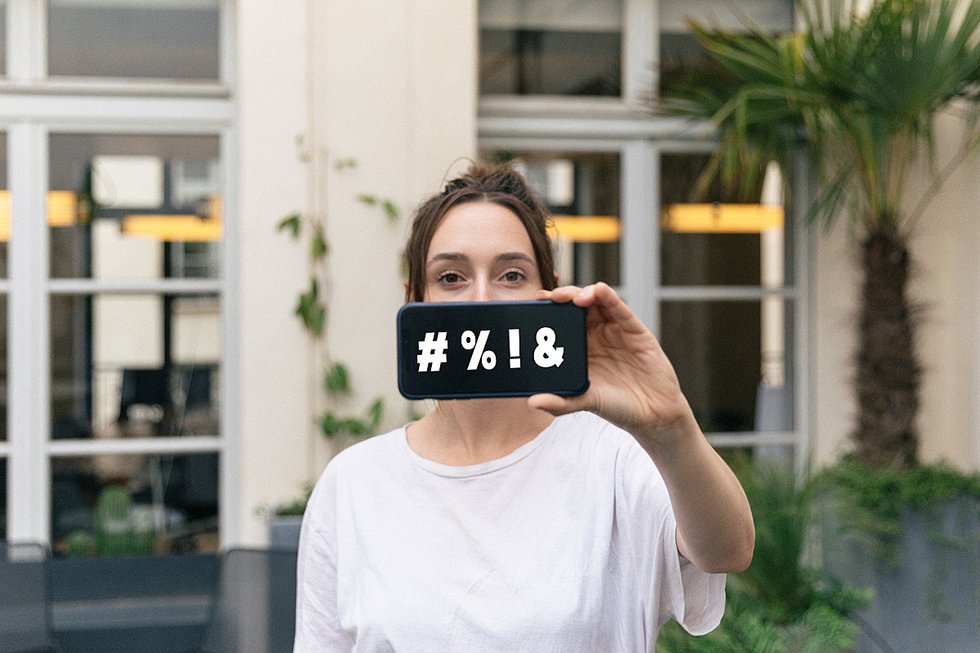To tweet or not to tweet: your digital fingerprint in the workplace
Jun 20, 2022
6 mins


Managing director at Branditmedia
Unless you’re planning to host the Oscars, you’re probably not going through your back catalog of tweets and social media musings, worrying if any skeletons are lurking in your digital closet.
But maybe you should. Here’s how to make sure your social media presence doesn’t affect your career.
It’s nigh on impossible not to leave a digital trail during your daily life. Some 92% of the American population uses the internet, where everything from your browser cookies to your purchases, location, and social media activity are not only visible but designed to be so, either publicly or for the businesses you share it with.
When it comes to the digital picture we build of ourselves, there is one area in which we have some control: social media. In 2021, 270.1 million people were active social media users in the US. That’s almost 81% of the population and an increase of 10 million people in just 12 months. In addition, the total number of people using social media in North America grew by 6.9% between April 2019 and Jan 2020. Facebook accounted for 69% of total social media usage in the US in early 2021, according to a report from the Pew Research Center conducted in January. It also noted that Instagram accounted for 40%, while Twitter 23%, and TikTok were at 21%. Americans are also spending a lot of time on these social media sites: an average of 2 hours and 14 minutes a day. They also have a lot of social media accounts, an average of 7.1 per person. That’s a lot of people churning out and commenting on content every second.
Social media usage raises the fundamental issue of what you consider private and personal communication and if that aligns with your employer. But first…
Do we have any legal right to online privacy?
You may be thinking, what about the First Amendment? Well, the Bill of Rights only restricts government action, so the First admendment won’t, in general, protect you if you are employed by a private company. However, The National Labor Relations Act (NLRA) stipulates the rights of employees to mobilize against poor working conditions, with or without a union. This protection has also broadened to encompass work-related conversations conducted on social media. In 2010, the National Labor Relations Board (NLRB), an independent federal agency that enforces the NLRA, started seeing suits related to employers disciplining employees for their Facebook posts. In 2012, they released guidance for employee/employer social media work relations: “employer policies should not be so sweeping that they prohibit the kinds of activity protected by federal labor law,” and “an employee’s comments on social media are generally not protected if they are mere gripes not made in relation to group activity among employees.” However, the law has not necessarily caught up to all of the latest trends in technology. These are general guidelines and not laws. It is up to the discretion of the presiding judge to determine if the employer violated any part of the NLRA.
Legislation has been introduced in 27 states to prohibit employers from requiring employees to hand over their social media passwords so that their activity can be monitored. There are no specific laws that covers public posts an employee of a private company puts up on their own social media. As a general rule, one can be fired because of what one says on social media if it leads to fostering a hostile work environment or is seen as detrimental to the company’s image. Additionally, in at-will states, employees can be let go at any time for any reason. For example, the state of New York is an employee at-will state, which means that the employer can terminate that person’s employment for any reason and that only those sharing posts that are legally protected forms of speech are safe from termination.
In a 2021 case, Ellis v. Bank of NY Mellon Corp., an employee of the bank, claimed that she was wrongfully terminated for her personal social media presence. Her post advocated violence toward demonstrators protesting the death of a black man killed by police officers in Pittsburgh. She advocated that her termination violated the Code of Conduct and Social Media Policy as her post was made on a weekend and outside of business hours; however, because her Facebook account was set to ‘public,’ the post was visible to anyone on Facebook. As a result, the court ruled in favor of the employer as the post was discriminatory.
In 2020, in Bennett v. Metropolitan Government of Nashville, the U.S. Court of Appeals for the Sixth Circuit voted against an employee’s claim of First Amendment rights. The city of Nashville let go Bennett after she put up racially derogatory social media posts on the night of the 2016 presidential election. The court held that the employer’s “interest in maintaining an effective workplace with employee harmony that services the public efficiently outweighs [the employee’s] interest in incidentally using racially offensive language in a Facebook comment.” And remember, this is a government employee who has more freedom of speech rights than someone working for a private company.
But do employers really look at our social media profiles?
Inevitably, the boundaries have become blurred and increasingly employers are expecting a worker’s non-work social media activity to meet their corporate standards. According to a 2020 survey in the US, 90% of employers find social media important when they evaluate candidates. Additionally, 79% of HR professionals have denied a job to a candidate due to inappropriate content on social media.
In 2015, a woman lost her new job before she had even started her first day after complaining to a friend on Twitter that it was “f** a* job.” Her soon-to-be ex boss sacked her—on Twitter—after the tweet was discovered, posting, “@Cella_ And…no. You don’t start that new FA job today! I just fired you! Good luck with your no money, no job life.”
Think before you post
Many professionals now view social media as an extension of their work email and the structures that apply there, with some using private social media behind strict privacy settings or closed groups. Nonetheless, even there, a screenshot can wreak untold damage.
Mariah Obiedzinski, senior director of content services at Stamats, said, “As far as company control over tweets, I’m all for holding people accountable for posting racist, sexist, or other hate-speech infused content. You wouldn’t keep someone employed who stood on your sidewalk shouting racial slurs. Social media posts are a digital equivalent, but can be much farther reaching.”
As we enter a new decade, it seems inconceivable that we would either share or initiate racist, homophobic or sexist material, for example. But what about strong political views? What about supporting, for example, anti-abortion laws in your state or, on the flip side, strong socialist views? How would this play with employers, current or future? A social media post is more than just a private rant at the water cooler or at the bar during happy hour. It is global from the moment it is sent. So keep these tips in mind while posting:
How to stay in control of your online presence
So what’s the best way to avoid a meeting with HR after a wild night out tweeting with abandon?
- 1. If your company has a Social Media Policy, read it. Usually, these expand on your existing email policy but will include reputational risk clauses from social media use. Check with HR on any grey areas and get THEM to tell YOU, in writing or via email, just in case you have to argue it in court.
- 2. If in doubt, don’t put it out there in the first place. “Delete” means nothing in an age of screenshots. Just ask Kanye West.
- 3. Have separate devices for separate accounts. If you need to maintain your company’s social media accounts, make sure to use a different device for your personal handles. This will help you avoid any mix-ups.
- 4. Consider going private. Or, at the very least, use one platform for friends and family and lock it in with privacy settings. This won’t stop a screenshot of something controversial from getting into the public domain, but who you let into your inner circle is up to you. If you have to use your own social channels for work—which those in marketing are usually required to do—bland never got anyone fired.
Posts that can get me into trouble?
It is important to read your company’s social media policy to ensure you don’t engage in any online activity that violates the rules. Here is a non-exhaustive list of content you’re usually not allowed to post:
- Negative opinions about your company
- Private or sensitive information about your company, employer, or colleagues
- Comments that constitute hate speech
- Remarks that reflect poorly on your company’s reputation
Perhaps the last word is that of Mark Zuckerberg, who always warned of this from the inception of Facebook, a warning many of us chose to ignore. “The question isn’t, ‘What do we want to know about people?’ It’s, ‘What do people want to tell about themselves?’”
Photo: WTTJ
Follow Welcome to the Jungle on Facebook and sign up for our newsletter to receive our best articles every week.

More inspiration: Work trends

Workplace influencers: How employee-generated content is changing the game
Who says becoming an influencer means quitting your day job?
Dec 05, 2024

The rise of homeless workers: A hidden crisis fueled by soaring costs
The rising cost of living is putting individuals on the brink of homelessness, even those with full-time jobs ...
Nov 21, 2024

The emotional toll of quitting in Japan—and the role of professional quitters
In Japan, quitting a job transcends professional boundaries, often becoming a deeply emotional and cultural challenge.
Nov 20, 2024

RTO or risk: Are return-to-office mandates harming company culture?
Flexible work policies have become a core expectation for employees and workers are viewing RTO mandates as restrictive.
Oct 30, 2024

Why are workers quitting after getting promoted?
29% of promoted employees quit within six months of their promotion—but why?
Mar 13, 2024
The newsletter that does the job
Want to keep up with the latest articles? Twice a week you can receive stories, jobs, and tips in your inbox.

Looking for your next job?
Over 200,000 people have found a job with Welcome to the Jungle.
Explore jobs